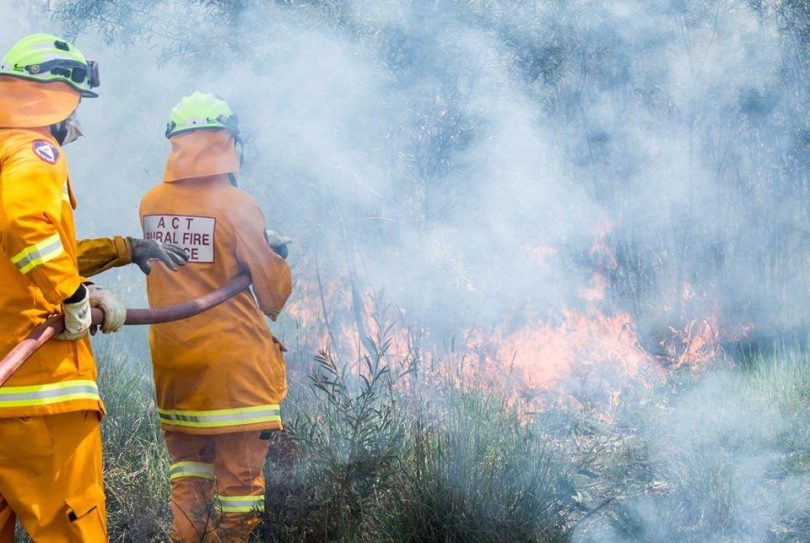
ACT Rural Fire Service members raised a number of concerns about being sidelined during the past bushfire season. Photo: Supplied.
Inadequate masks, poor volunteer treatment, not enough access to opportunity, and a lack of government funding for fences have all been identified by a review of ACT emergency services responses to the past bushfire season.
The grievances of rural landholders in the ACT were specifically acknowledged in the report – conducted by the Standing Committee on Justice and Community Safety – which recommends at least 50 per cent of the rebuilding cost for fences be fronted by the ACT Government.
Work to widen the firebreaks between Namadgi National Park and rural landholder neighbours is also needed ahead of the upcoming fire season.
During the inquiry’s hearings, the Rural Landholders Association criticised the ACT Government for leaving rural landholders high and dry financially when it came to repairing the devastation from the Orroral Valley bushfire.
Updated breathing apparatuses for the ACT Rural Fire Service (ACT RFS) are also needed, with the current P2 masks being labelled as “not adequate for firefighters” by the committee.
ACT RFS volunteers receive disposable P2 masks, similar to ones purchased by many Canberrans when smoke blanketed the city earlier this year, but trials are underway to upgrade to the bulkier, but more effective, P3 masks.
However, ACT RFS chief officer Rohan Scott admitted that mask trials can take years.
“We have had input from all brigades,” he told the inquiry in September. “We did some trials during the past season and we have also conducted some controlled experiences in the smokehouse where we were trying different types of masks.
“We have also been working with the NSW RFS to see what they are doing in the same context of better respiratory protection for their members.”
Equal treatment of volunteers and full-time staff is also needed as cultural problems within the Emergency Services Agency (ESA) led to fractured relationships between it and RFS volunteers, the inquiry found.
“A symptom of the relationship between the RFS and ESA is the matter of catering,” it said. “RFS are expected to bring food with them for entire shifts at their own cost, while paid staff receive catering.”
Volunteer firefighters expressed their frustrations at being sidelined and mishandled during the devastating Orroral Valley bushfire despite being given significant responsibilities, including command roles on interstate deployments.
This includes being left out of Incident Management Teams and as liaison officers.
“Volunteers have lacked a voice in major decisions that affect the service and are demoralised,” wrote veteran ACT RFS firefighter Anura Samara.
“There were occasions when the ACT RFS struggled to fill specific roles for shifts. This was not due to a lack of members, but the limited number of members with the competencies and experience to fill every role while also managing fatigue across multiple shifts.”
Training courses outside of businesses hours, continual recruitment drives and more feedback from the RFS were all recommended to address the limited availability for promotions and limited opportunities to take on higher responsibility roles in the RFS due to infrequent training programs.













